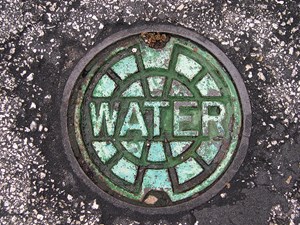Georgia's water, wastewater infrastructure receives "C minus" grade from American Society of Civil Engineers
(UI) — The Georgia Section of the American Society of Civil Engineers (ASCE) released the 2024 Report Card for Georgia’s Infrastructure, with 14 categories of infrastructure receiving an overall grade of ‘C+’. This is the same grade as the 2019 Report Card for Georgia’s Infrastructure. A ‘C+’ grade means Georgia’s infrastructure is in above-average condition but still requires attention. Georgia’s grade is two steps higher than the national average of ‘C-’ in the 2021 Report Card for America’s Infrastructure.

The Report Card found Georgia’s water systems face increasing costs to keep up with the state’s growing population. The state’s drinking water investment needs have grown to $19.7 billion over the next 20 years, compared to $12.5 billion in 2018.
While people in Georgia pay less than the national average for drinking water, lower consumer bills make it difficult for water utilities to recover the full cost of service and build for the future with ongoing maintenance and capital needs, as well as respond to new rules and regulations.
Water systems face higher costs as they comply with new requirements to replace lead service lines and reduce the levels of “forever chemicals” in drinking water. Stormwater and wastewater systems also face new and increasing expenses to expand and serve the state’s growing population and increase the resilience of existing systems which are facing more frequent extreme weather events.
“Georgians can take pride in seeing the success of infrastructure investment. This Report Card shows the results when lawmakers realize better infrastructure creates benefits for people and businesses,” said Julie Sechrist, P.E., Chair of the 2024 Report Card for Georgia’s Infrastructure.
“While there is a lot to be proud of, there is still room for progress, especially for water systems that serve Georgia’s growing population. As more people and businesses move here, these life-sustaining systems need increased funding to grow, improve, and become more resilient to new and ongoing threats.”
Additionally, Georgia's energy system received a ‘B’ grade, compared to a ‘C-’ grade on the Report Card for America’s Infrastructure. Georgia has invested billions in energy grid upgrades and accelerated its transition away from coal-fired power plants to nuclear, natural gas, and solar energy sources. With more people and businesses moving to Georgia and increased energy needs as more companies build new data centers in the state, a reliable and robust energy grid is vital for Georgia’s economic future.
Other recommendations to raise the grade include:
Set responsible, resilient utility rates and user fees: Pursue utility rate increases to fully account for the full cost of service, including capital, maintenance, and operating needs. This should include life-cycle costs, materials, labor, inflation, and resilience upgrades necessary for extreme weather.
Invest in new electricity generation and a resilient grid: State and local authorities should fund and facilitate new forms and greater scales of energy generation. Retrofits and new connections in the energy grid will ensure resilience to extreme weather and a backbone supporting population and business growth.
Twelve of the 14 categories evaluated in the Georgia Report Card received grades higher than the national Report Card. Two categories (rail and solid waste) earned the same grade as their national counterparts. The grade for each category is below:
Ports - B+
Bridges, Energy, Rail, Schools - B
C+ - Aviation, Drinking Water, Roads, Solid Waste
C - Public Parks
C minus - Stormwater, Wastewater
D+ - Dams
D - Transit
Related News
From Archive

- Glenfarne Alaska LNG targets late-2026 construction start for 807-mile pipeline project
- U.S. water reuse boom to fuel $47 billion in infrastructure spending through 2035
- $2.3 billion approved to construct 236-mile Texas-to-Gulf gas pipeline
- Major water pipe break in Puerto Rico hits over 165,000 customers
- Potomac River Tunnel project enters construction phase beneath Washington, D.C.
- Pennsylvania American Water launches interactive map to identify, replace lead water service lines
- Trump's tariffs drive $33 million cost increase for Cincinnati sewer project
- Utah city launches historic $70 million tunnel project using box jacking under active rail line
- Tulsa residents warned after sewer lines damaged by boring work
- Fatal trench collapse halts sewer construction in Massachusetts; two workers hospitalized



Comments